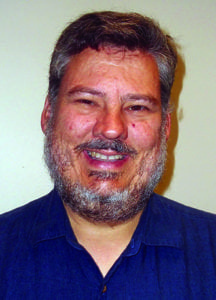D’var Torah
Rabbi David Feder
The seasons have turned. The cold and ice of winter have given way to warmth and showers of spring, and with it our festival of spring, Chag HaAviv, Pesach.
Last Pesach was the first major holiday that we celebrated while socially distant. We embraced the challenge, reducing rather than multiplying recipes and finding creative ways to share time together over laptops, tablets and phones – all in the hope that this year we would celebrate together, in person.
Most of us expected that the major restrictions would be measured in weeks or perhaps a few months. Almost no one foresaw that one year later, our activities would still be constrained.
The novelty of connecting virtually has long since worn off. We feel COVID fatigue as we continue to socially distance from friends and family, avoid in-person gatherings, wear masks and stay on guard for the safety and welfare of ourselves and others.
While time might flow like a river, it feels as if we are merely treading water, awaiting the restoration of life as we knew it.
Through Pesach, we experience the passage of cyclical and linear time. Every year, we witness the rebirth of nature at springtime and prepare for the harvest of early grains. We mark the passage of time. We reflect upon our experience in Egyptian bondage – and our redemption from it – and other occurrences of persecution and suffering followed by liberation, all leading to the ultimate liberation when we overcome what divides us, making real the visions of our prophets.
Through the pandemic, we have experienced our own plague this year. Its influence has been as oppressive as Pharaoh’s or any tyrant in history who has risen against us. And like those instances in our past, we will overcome this difficulty.
We have seen and felt other oppressive forces – man-made plagues, if you will – this past year, struggling with our national history of racism and bigotry, inequities in policing and the level of hate crimes against Asian Americans. We have seen the normally peaceful transfer of power from one party to another turn violent with the threat of sedition and the attempted overthrow of our government.
We have suffered from the coronavirus or known those who were afflicted and still feel its effects. We have seen the economic impact of the virus through shuttered shops and restaurants, friends and neighbors out of jobs and others whose work lives have been disrupted.
These negative experiences could have diminished our desire to celebrate Pesach. Why not just continue to tread water and wait for next year – the post-COVID era? Because we remember yetziat Mitzrayim, coming out of Egypt, which our sages tell us can also be read as coming out of narrow and constricting places. After this past year, we certainly know that feeling.
During hard times, we have always added to our story and augmented our rituals. We will do the same now, adding these new experiences to our story; we owe it to our future. We see a new era on the horizon and the beginning of the end of these plagues.
Hope, like spring, is breaking through this long, cold winter as the first buds of new life emerge. That hope for better days to come links us to the future. The Four Questions, the Passover story and the hunt for the afikoman not only connect us to our memories – what we see as normal – they serve notice that we have survived a difficult trail and continue our journey. May it be a journey that takes us into a future filled with light and hope.



